Follow Us
Judges 1:1-2:5, NLT
Judges 1
Judah and Simeon Conquer the Land
1After the death of Joshua, the Israelites asked the Lord, “Which tribe should go first to attack the Canaanites?”
2The Lord answered, “Judah, for I have given them victory over the land.”
3The men of Judah said to their relatives from the tribe of Simeon, “Join with us to fight against the Canaanites living in the territory allotted to us. Then we will help you conquer your territory.” So the men of Simeon went with Judah.
4When the men of Judah attacked, the Lord gave them victory over the Canaanites and Perizzites, and they killed 10,000 enemy warriors at the town of Bezek.
7Adoni-bezek said, “I once had seventy kings with their thumbs and big toes cut off, eating scraps from under my table. Now God has paid me back for what I did to them.” They took him to Jerusalem, and he died there.
8The men of Judah attacked Jerusalem and captured it, killing all its people and setting the city on fire.
11From there they went to fight against the people living in the town of Debir (formerly called Kiriath-sepher).
14When Acsah married Othniel, she urged him*1:14 Greek version and Latin Vulgate read he urged her. to ask her father for a field. As she got down off her donkey, Caleb asked her, “What’s the matter?”
15She said, “Let me have another gift. You have already given me land in the Negev; now please give me springs of water, too.” So Caleb gave her the upper and lower springs.
16When the tribe of Judah left Jericho—the city of palms—the Kenites, who were descendants of Moses’ father-in-law, traveled with them into the wilderness of Judah. They settled among the people there, near the town of Arad in the Negev.
17Then Judah joined with Simeon to fight against the Canaanites living in Zephath, and they completely destroyed*1:17a The Hebrew term used here refers to the complete consecration of things or people to the Lord, either by destroying them or by giving them as an offering. the town. So the town was named Hormah.*1:17b Hormah means “destruction.”
Israel Fails to Conquer the Land
19The Lord was with the people of Judah, and they took possession of the hill country. But they failed to drive out the people living in the plains, who had iron chariots.
21The tribe of Benjamin, however, failed to drive out the Jebusites, who were living in Jerusalem. So to this day the Jebusites live in Jerusalem among the people of Benjamin.
22The descendants of Joseph attacked the town of Bethel, and the Lord was with them.
27The tribe of Manasseh failed to drive out the people living in Beth-shan,*1:27 Hebrew Beth-shean, a variant spelling of Beth-shan. Taanach, Dor, Ibleam, Megiddo, and all their surrounding settlements, because the Canaanites were determined to stay in that region.
29The tribe of Ephraim failed to drive out the Canaanites living in Gezer, so the Canaanites continued to live there among them.
30The tribe of Zebulun failed to drive out the residents of Kitron and Nahalol, so the Canaanites continued to live among them. But the Canaanites were forced to work as slaves for the people of Zebulun.
31The tribe of Asher failed to drive out the residents of Acco, Sidon, Ahlab, Aczib, Helbah, Aphik, and Rehob.
33Likewise, the tribe of Naphtali failed to drive out the residents of Beth-shemesh and Beth-anath. Instead, they moved in among the Canaanites, who controlled the land. Nevertheless, the people of Beth-shemesh and Beth-anath were forced to work as slaves for the people of Naphtali.
34As for the tribe of Dan, the Amorites forced them back into the hill country and would not let them come down into the plains.
Judges 2
The Lord’s Messenger Comes to Bokim
1The angel of the Lord went up from Gilgal to Bokim and said to the Israelites, “I brought you out of Egypt into this land that I swore to give your ancestors, and I said I would never break my covenant with you.
4When the angel of the Lord finished speaking to all the Israelites, the people wept loudly.
